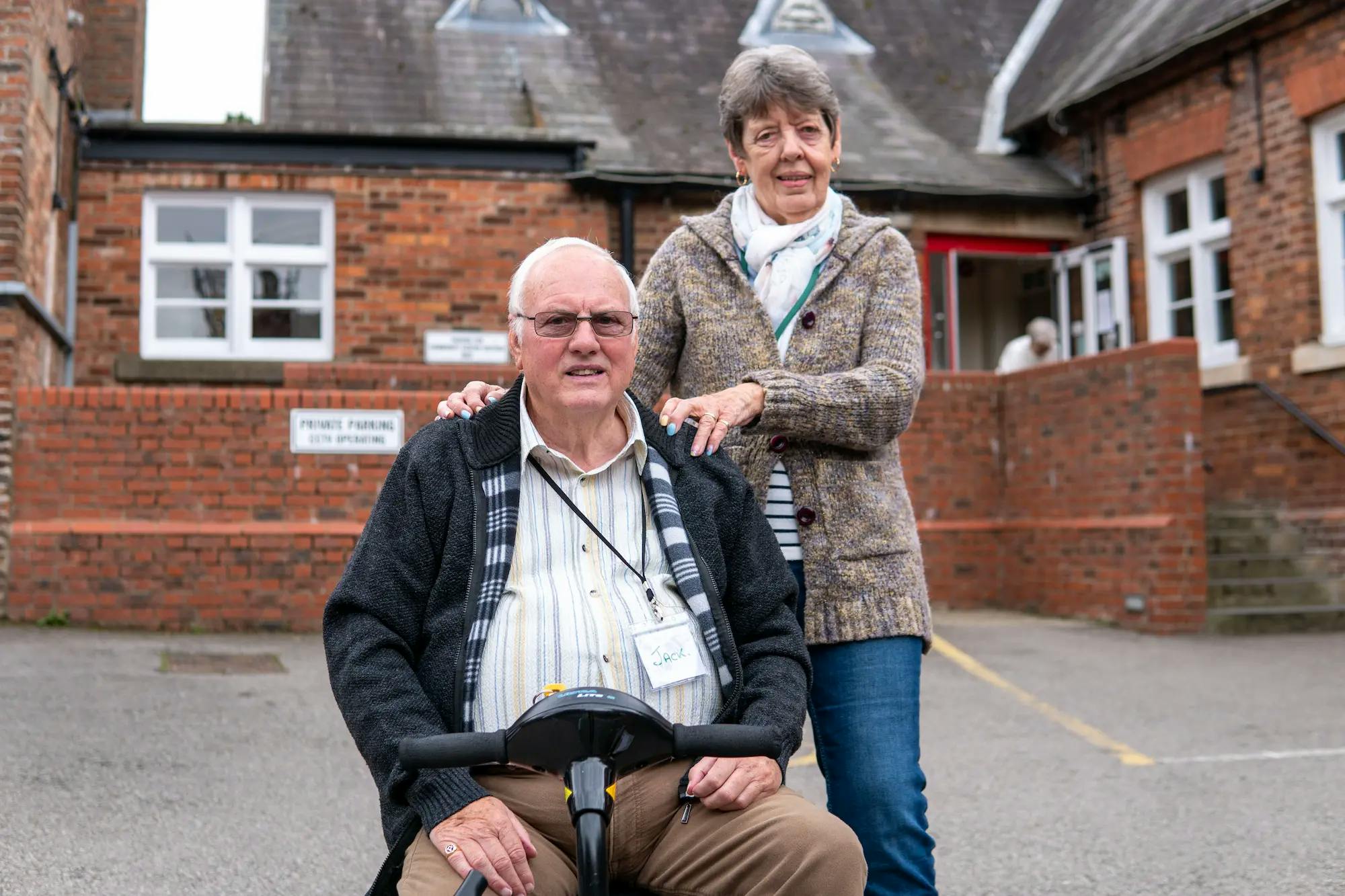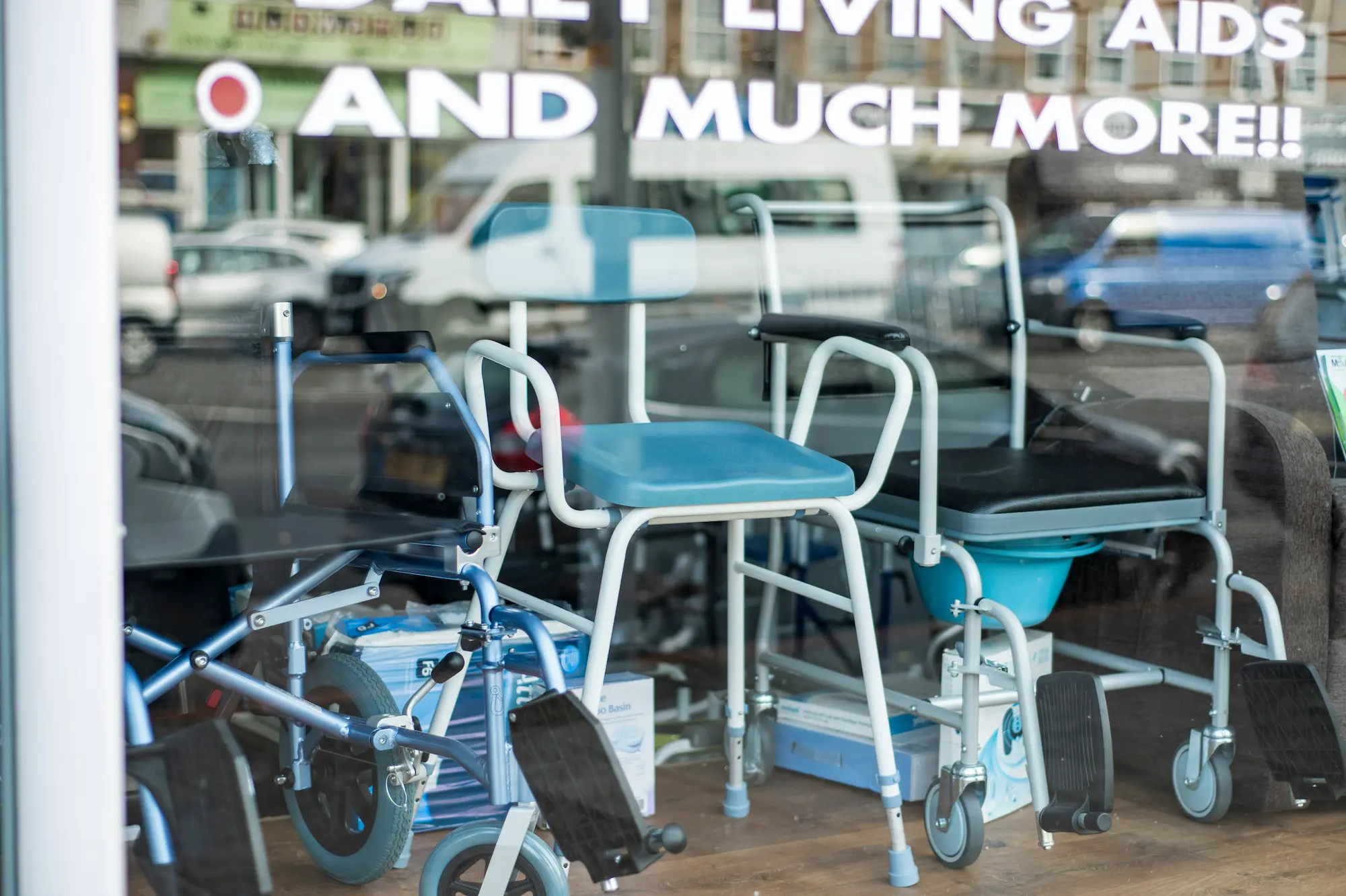PIP Mobility Walking Test | How You’ll Be Assessed

Estimated Reading Time: 6 minutes
Your entitlement to Personal Independence Payment (PIP) depends on the medical condition you have and how this affects your ability to complete daily tasks and get around. In this article, we’ve focused on the PIP mobility walking test, including how this assessment works and what rate of PIP you could qualify for.
This mobility test looks at how far you can walk without difficulty. The distance you can travel determines whether you qualify for the standard rate (£28.70) or the enhanced rate (£75.75).
Arrange care at home
Browse the best home care in your area.
In this article:
- What is the PIP test?
- Moving around
- How does the PIP mobility walking test work?
- Do you qualify for the standard or enhanced mobility rate?
- PIP mobility 20-metre personal stories
- PIP in a Care Home
We aren't able to provide Personal Independence Payment (PIP) advice through our concierge service. For help when trying to claim PIP, call the PIP claims contact number on 0800 917 2222. Citizens Advice, Turn2us and many local authorities can also provide free and confidential PIP advice.
What Is the PIP Test?
The Department for Work and Pensions (DWP) will use the PIP test to determine whether you qualify for Personal Independence Payment (PIP), and at which rate.
There’s a separate test for daily living and mobility. Within each of these tests, you’ll be awarded points, depending on whether you’re able to complete tasks in a safe and reliable way and how much assistance you require. The number of points you score will then be added together to give you a total.
One part of the mobility test looks at how far you’re able to walk.
PIP points system
PIP uses a points system to work out whether you’re eligible and which rate you qualify for. For example, if you have limited mobility, you’ll score a higher number of points than if you find it easy to move around.
When it comes to the daily living component, you’ll score 2 points if you need help with tasks such as brushing your hair, and 3 points if you need help getting in and out of the shower or bath.
For the daily living and mobility components, you’ll qualify for the standard rate if you score between 8 and 11 points, while you’ll qualify for the enhanced rate if you score 12 points or more.
You can use the money from PIP to help pay for care at home, and we can assist you in finding the best home carer for your or your loved one’s care needs. You can request a free home care shortlist, where we’ll match you with suitable home care agencies that have availability in your local area.
Moving Around (Walking Test)
Moving around forms one part of the mobility assessment for PIP (with the other being how well you’re able to plan and follow journeys).
Below, we’ve listed the number of points you’ll likely be awarded for the PIP mobility walking test, depending on how far you’re able to walk and whether you require assistance to do so.
You only score points for the statement which is true most of the time, rather than adding multiple sets of points together.
12 points
You can stand and then move between 1 and 20 metres, with or without a special aid or other form of assistance. An aid could be a walking stick, a walking frame or something similar.
Or, you can’t stand or move more than one metre, even with the use of a special aid.
10 points
You can stand and then move between 20 and 50 metres with a special aid or appliance.
8 points
You can stand and then move between 20 and 50 metres without any assistance or the use of a special aid.
4 points
You can stand and then move between 50 and 200 metres, either aided or unaided.
0 points
You can stand and move over 200 metres, either unaided or aided.

How Does the PIP Mobility Walking Test Work?
Personal Independence Payment (PIP) is divided into two components:
- Daily living
- Mobility
The amount of points you score when assessed for each of these will determine whether you qualify and at what rate.
Your entitlement for the mobility component is based on how many points you score when moving around, along with your ability to plan and follow journeys.
For the walking test, you’ll likely be invited for a face-to-face medical assessment, where the assessor (this could be a health professional) will observe your ability to move around. How far you’re able to walk - aided or unaided - will determine what score you’re given for the mobility walking test.
Do You Qualify For the Standard or Enhanced Mobility Rate Of PIP?
You could qualify for the standard PIP mobility rate (£28.70 a week) if you score between 8 and 11 points. You’ll qualify for the enhanced PIP mobility rate (£75.75 a week) if you score 12 points or more.
Your score for the walking test will be added to your score in planning and following a journey to work out whether you’re eligible and which rate you qualify for.
The DWP will determine your score, based on notes from the assessment, your claim form and any documents sent with this.
PIP Mobility 20-Metre Personal Stories
Disability Rights UK has collated several case studies from people who can walk a mixture of up to 20 metres and between 20 and 50 metres.
Many of these people would score 8 or 10 points on the PIP mobility walking test, meaning they’d qualify for the standard mobility rate of Personal Independence Payment.
PIP In a Care Home
When living in a care home, your PIP may stop, depending on who pays your care home costs.
If you pay for your own care home fees, PIP and any other disability benefits will continue. You’ll also continue receiving this benefit if you’ve entered into a deferred payment agreement with your council.
Your benefits will stop after the first 28 days in care if you receive help with fees from your local council or the NHS.
The mobility component of PIP will continue if you’re living in a residential care home, but will stop if you’re in a nursing home.
Lottie matches care seekers with the best home carers for their care needs. You can request a free list of home care agencies, where we’ll find you home care providers with availability in your local area.
Frequently Asked Questions
How far does PIP expect you to walk?
How far you’re able to walk - and whether you’re able to walk aided or unaided - will determine your mobility test score. This in turn determines whether you qualify for Personal Independence Payment, and whether you qualify for the standard or enhanced rate.
If you’re unable to walk more than 20 metres, you could qualify for the enhanced rate of PIP. If you can walk more than 20 metres - aided or unaided - you may qualify for the standard rate of PIP.
What is the walking speed for PIP?
When having your mobility assessed for PIP, you may need to cover the distance within a ‘reasonable time period’. Often, this is around 30 metres per minute, but it could be higher or lower, depending on your age and gender.
What is the 20-metre rule for PIP?
If somebody with a disability or medical condition that limits their mobility can walk more than 20 metres - with or without assistance - they’ll no longer qualify for the enhanced mobility rate of Personal Independence Payment. Instead, they’ll likely qualify for the standard rate.
Free Care Fees & Funding Email Course
Written by our team of experts and designed to help families fund later life care in England.



